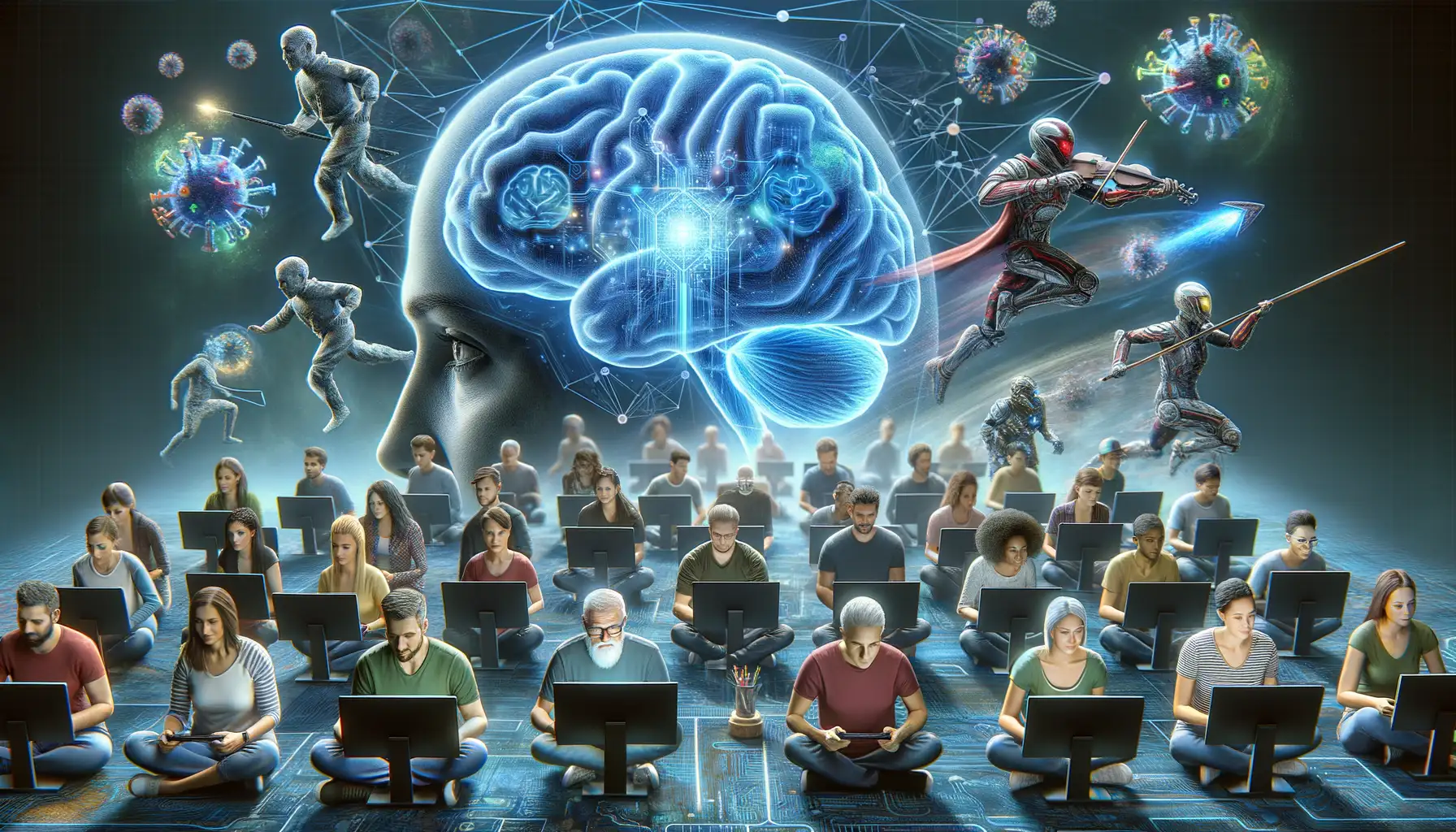The Historical Journey of Currency
The Ancient Spark of Trade
Imagine a time when people swapped goods instead of spending cash—livestock for grain, pottery for fabric. This was barter. It had its charm but… not exactly practical when you needed something like salt and all you owned were goats! Enter the invention of money. The earliest form of currency? Precious metals and stones. Picture holding a chunk of silver to buy your next meal. Clunky? Absolutely. But revolutionary.
By 600 BCE, the first coins glimmered into existence in ancient Lydia (modern-day Turkey). These weren’t just shiny trinkets—they were stamped with symbols, marking the dawn of trust in trade. No more guessing if your neighbor was fair; the coin was proof enough. Talk about an ancient life hack!
A Glance at Currency Through Civilizations
The journey didn’t end there—it evolved through cultures and centuries:
- China: Introduced paper money by 800 AD—lightweight and easy to carry. Genius, right?
- Egypt & Mesopotamia: Standardized weights; think early currency “apps” ensuring consistency.
- Rome: Coins became propaganda tools, flaunting emperors’ faces and their achievements.
Each society left its mark, weaving currency into the tapestry of human progress. From clinking coins to printed notes, every step whispers stories of survival, ingenuity, and connection.
The Transition from Coins to Paper Money
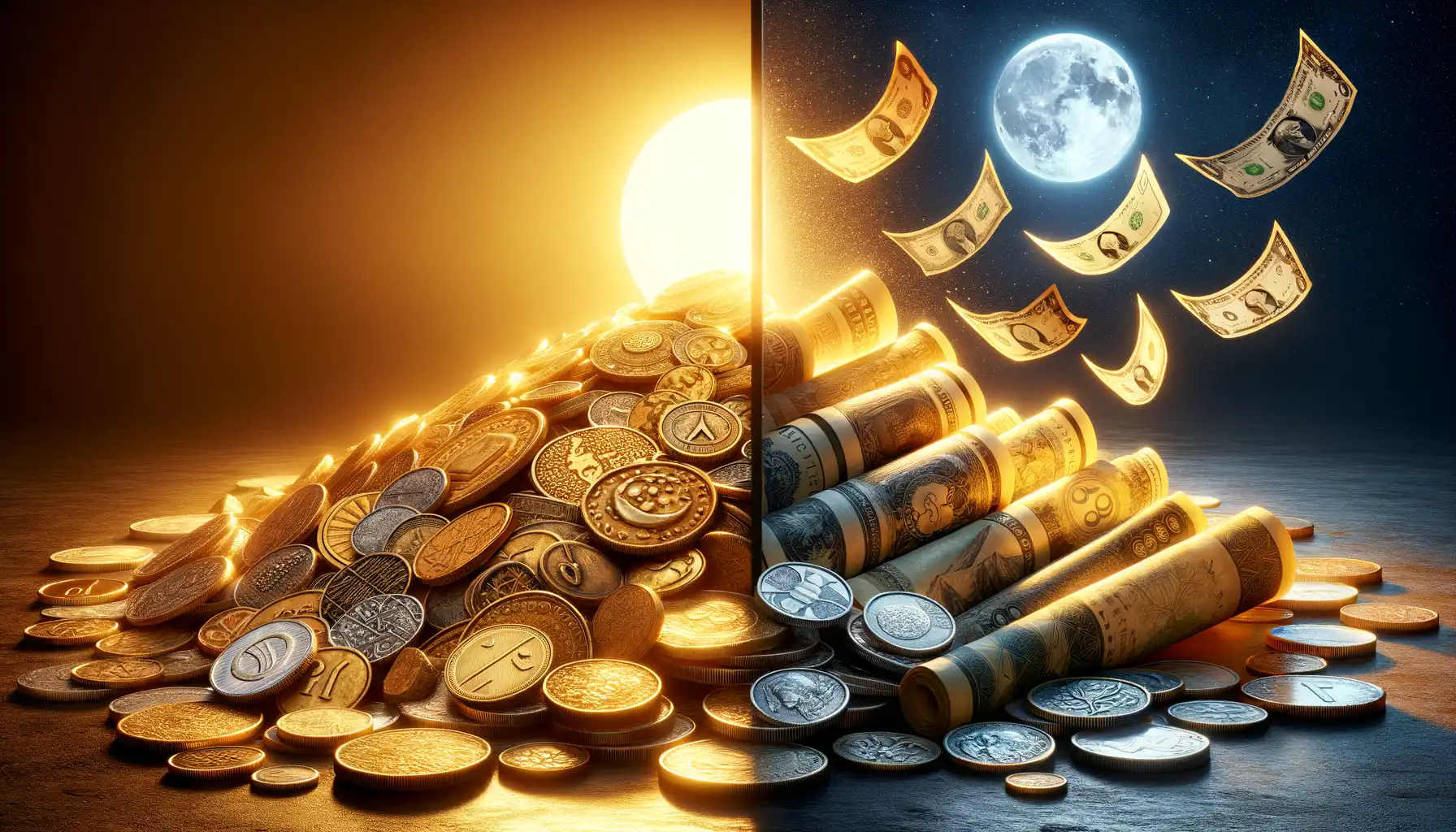
The Dawn of Lightweight Currency
Imagine jingling pockets, loaded down with heavy coins, each one a small piece of treasure—but also a bit of a burden. Carrying wealth used to be a physical task until someone asked the revolutionary question: “What if value could travel on paper?” Enter the era of paper money, and with it, a seismic shift in how humans understood trade.
Paper notes were more than just a convenience; they were a leap of trust. Coins, made of precious metals, had intrinsic value—gold was gold. But a slip of paper? Its worth depended entirely on mutual agreement, and that was groundbreaking. The first adopters, like China during the Tang and Song dynasties, proved its feasibility, and soon, empires followed suit.
- Less weight to carry but just as valuable.
- The ability to print rather than mine wealth.
- Easier long-distance trade across lands and borders.
This wasn’t just evolution—it was a financial revolution. Suddenly, invisible promises represented tangible power, and societies redefined trust in a bold, audacious way.
The Rise of Digital Transactions
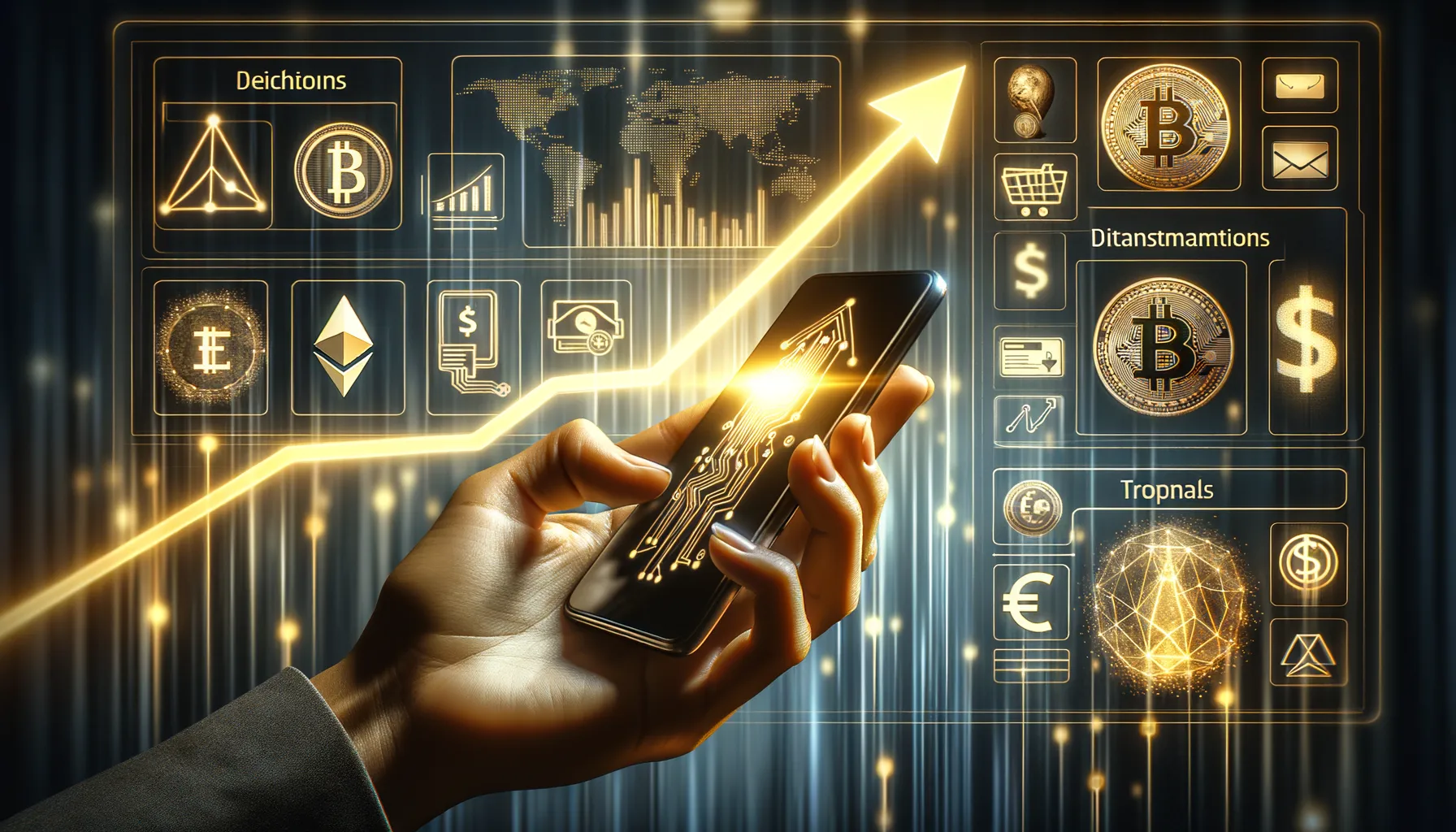
The Dawn of a Cashless World
Imagine carrying no wallet, yet buying coffee, groceries, or even a plane ticket with nothing more than your smartphone. This is the world of digital transactions—a phenomenon that has redefined how we exchange value.
Gone are the days of fumbling for spare change at the checkout line. Today, with a quick tap or scan, money flows invisibly and effortlessly. Platforms like PayPal, Venmo, and countless mobile banking apps have made this seamless process feel second nature. What’s truly remarkable is the shift in trust: once upon a time, people clung to physical cash for its certainty, but now, numbers on a screen carry the same weight—if not more.
How Digital Payments Changed Our Lives
Here’s why digital transactions became indispensable almost overnight:
- Speed: Forget waiting in long ATM queues—transactions happen in seconds.
- Convenience: Pay bills, split dinner tabs, or shop globally—all from your couch.
- Security: No cash to lose, and advanced encryption keeps your funds safe.
From contactless payments at local stores to massive international wire transfers completed with a click, digital transactions empower us to move money faster and smarter. It’s as if currency itself evolved to match the breakneck speed of modern life.
Cryptocurrency and Blockchain Technology
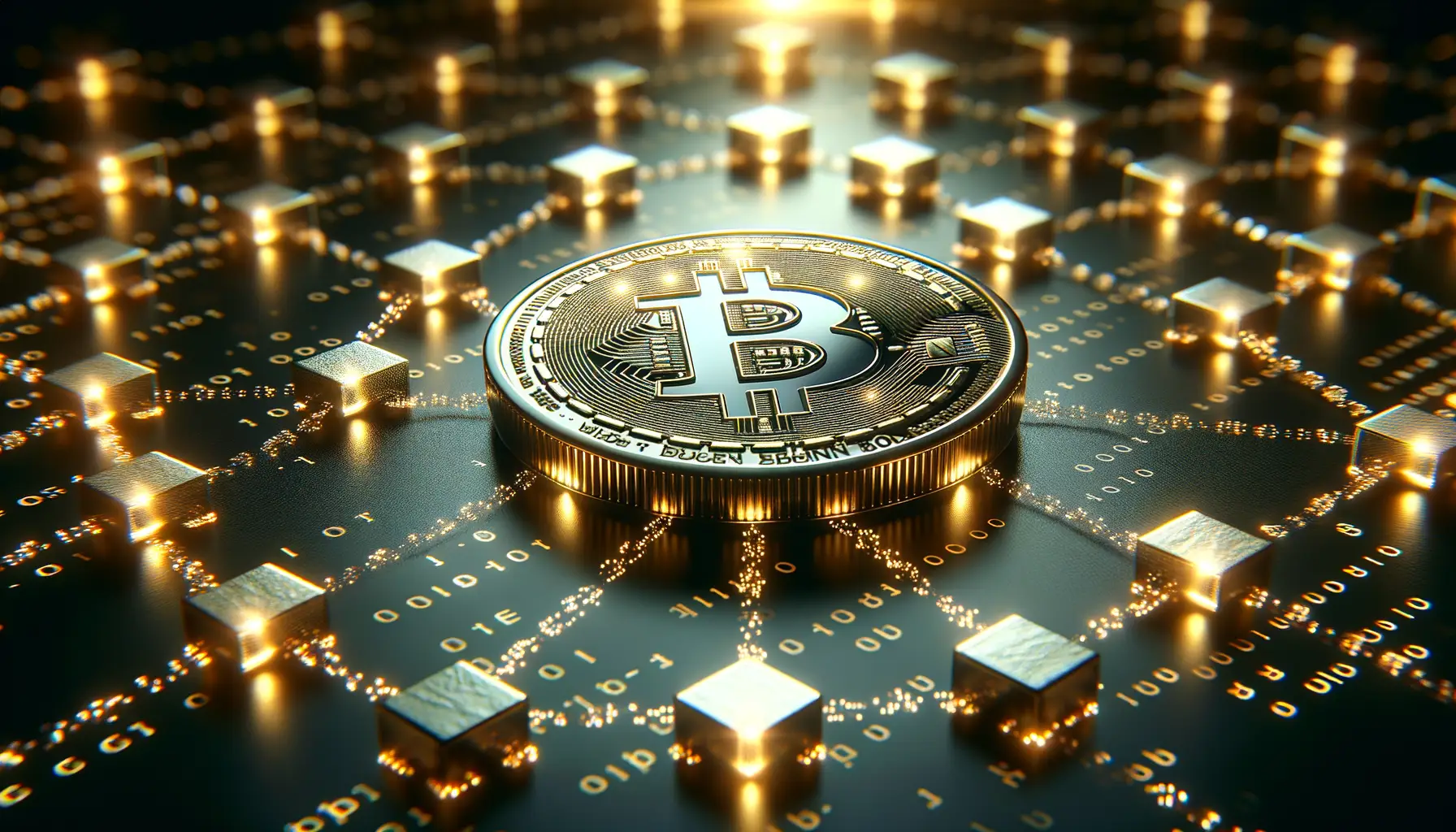
The Revolution of Digital Ownership
Ever imagined owning something you can’t touch but still has real-world value? Welcome to the world of cryptocurrency. Think of it as digital gold—precious, finite, and completely yours. Unlike traditional currencies controlled by banks or governments, cryptocurrency gives power back to the people. The magic behind it? A little thing called blockchain technology.
At its core, blockchain is like an unhackable diary shared across millions of computers. Every transaction, every transfer, is recorded forever in this transparent, tamper-proof ledger. No middlemen, no gatekeepers. Want to send money halfway across the globe? Forget delays and fees. With cryptocurrency, it’s as quick as sending a text.
- Bitcoin: The pioneer, often viewed as “digital gold”.
- Ether: Your ticket to the world of decentralized applications.
- Stablecoins: Combining digital efficiency with stability.
A New Economic Frontier
But it’s not just about online shopping or speculative investments. Blockchain is reshaping how we think about trust. Imagine tracking your coffee beans from farm to cup or securing legal contracts without messy paperwork. This is more than currency—it’s a movement. The question isn’t if blockchain will impact you; it’s how soon.
The Future of Currency in a Digital Age
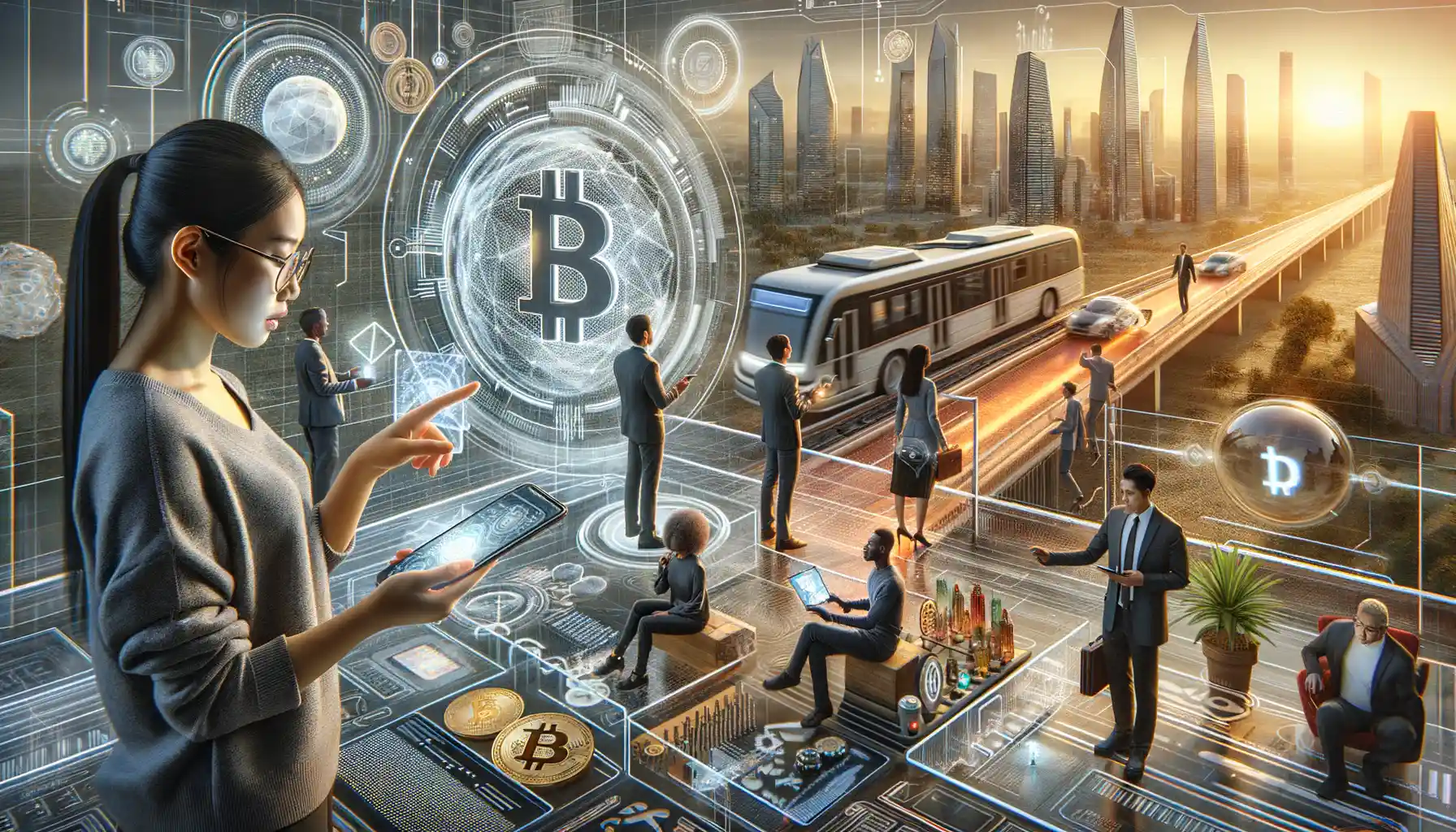
Redefining Value in a World Without Borders
Picture this: a world where your wallet isn’t a leather fold of bills but an app, and payments zip across continents as effortlessly as sending a selfie. The future of currency isn’t just digital—it’s a radical rethink of what money can truly be.
We’re already seeing the shift. Remote workers get paid instantly from overseas clients. A street vendor in Nairobi accepts Bitcoin for handmade jewelry. Even that local coffee shop down the block might let you tap your smartwatch for payment. It’s not just convenience; it’s revolution. Money is becoming borderless, decentralized, and faster than ever before.
- Blockchain-powered currencies are taking trust out of the equation—why rely on banks when math and code work flawlessly?
- Central Bank Digital Currencies (CBDCs) promise a hybrid between stability and innovation.
- The rise of AI-driven financial systems could personalize how we interact with our money entirely.
What Does Freedom Feel Like?
Imagine paying for a Tokyo train ride using your phone in Paris. That’s the beauty of a digitized currency ecosystem. No more currency conversions. No delays. Just a seamless click—and poof! Your money travels faster than a plane ticket.
The traditional rules? Thrown out. In this brave new world, your grandma could send birthday money via her smartwatch, and your savings might grow in a decentralized protocol instead of a brick-and-mortar bank. Welcome to the era where money feels limitless.



